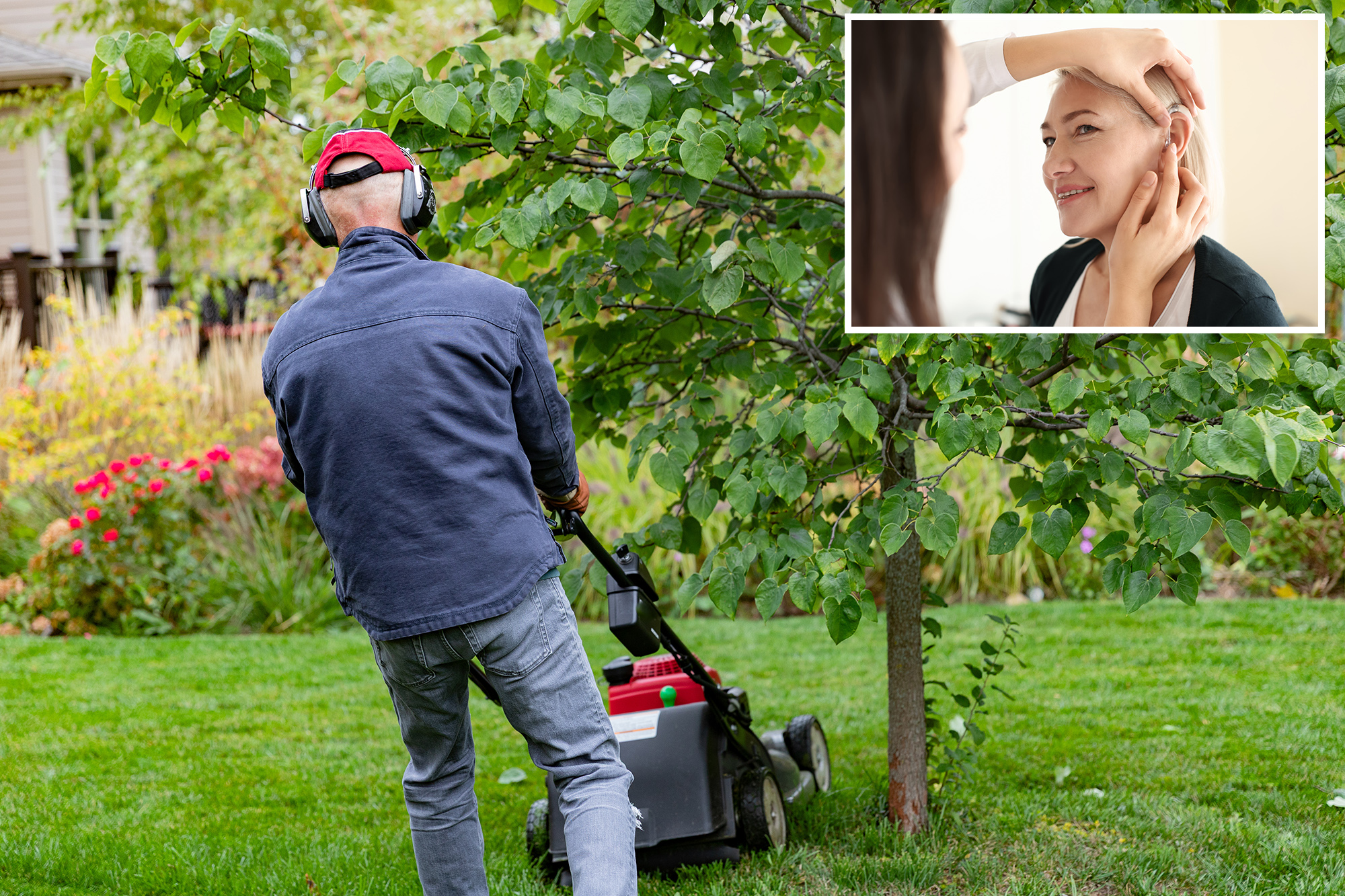Hearing loss is one of the most common conditions that affect the elderly, with approximately one in three north -Americans between 65 and 74 affected, according to National Health Institutes (NIH).
Although a little of this loss is due to the fact that the inner ears cells break with age and not collecting vibrations as well, there are some risk factors that can be controlled by behavioral modifications.
Making small changes now can help protect your ears and ear later in life, advise experts.
Here are some practical tips that you can start to implement today.
1. Limit exposure to loud noises
Whether this is a busy concert, heavy traffic or constant crisis of electric tools, it is known that repeated exposure to high levels of noise cause permanent damage to delicate structures in the inner ear.
One of the most effective ways to protect your hearing as you grow older is to limit your exposure to these strong environments, according to the NIH.
Even small adjustments, such as lowering the volume of the headphones or making quiet breaks during a noisy event, can make a big difference over time.
2. Protect your ears in noisy environments
Internal ear damage can occur long before it is displayed in a hearing test, according to the NIH, which means that prevention is key.
When strong situations are inevitable, and expect to be exposed for more than a few minutes, experts recommend wearing ear protection, such as foam ear caps or noise cancellation headphones.
Foam ear caps are an affordable and easy -to -transport option; They reduce the noise from 15 to 30 decibels, according to Webmd.
The ears, which cover the entire ear, offer similar protection and can be carried with ear caps for an added defense.
Some ear caps are designed to reduce sound evenly at all frequencies, which makes them ideal for musicians or anyone who wants a clear but quieter audio.
3. Please check your hearing regularly
Like dental cleansing or eye exams, regular hearing reviews are an important part of the maintenance of general health.
The World Health Organization (WHO) recommends that adults aged 50 to 64 have their audition analyzed by an audiologist every five years.
Hearing exams are especially important for those who have a family history of hearing loss, difficulties in worrying about conversations, have a high degree of noise exposure, often listening to their ears or have no previous proof of tests.
Your healthcare provider will evaluate the operation of your hearing and check the early signs of hearing loss.
“Screening does not always mean passing a full hearing test,” Fox News Digital Lindsay Creed, Audiologist and Associate Director of Audiology Practices of the American Speech-Language-Hearing Association (ASHA) told Fox.
“You can start with some simple questions from your doctor during a physical routine, or even a short questionnaire as a first step.”
4. Avoid smoking
Smoking does not only affect the lungs and heart, but can also harm your hearing.
According to a study by NIH, current smokers are 61% more likely to suffer from prevalent hearing loss compared to non -smokers.
The good news? Leave the difference.
The old smokers who left for more than five years reduced their risk to almost as low as individuals who have never smoked, found the same study.
5. Note the age -related ear conditions
Although hearing loss is common with age, it is not the only auditory problem.
According to the AARP (American Association of Retirred people), conditions such as Tinnitus can also be developed, which are often raised between the ages of 60 and 69. Tinnitus causes persistent sounds such as sounding, swirling, buzzing or stepping on the ears.
Most cases are related to sensory hearing loss, the type that is usually produced with age, says the American Tinnitus Association.
Although there is no care, various treatments can help reduce the impact of symptoms.
Another condition that becomes more common with age is benign paroxysmic dizzying (BPPV), which causes brief but intense episodes of dizziness, according to the Mayo Clinic.
This occurs when tiny calcium crystals in the inner ear move out of place.
The Lindsay Creed audiologist said that the head trauma is usually the cause of the youngest, but in those over 50 years old, age -related natural changes in the inner ear is more likely to be culprit.
Once someone experiences BPPV, future episodes become more likely.
The condition can often be treated with a simple maneuver at the office made by a medical professional to reposition the crystals, although Creed advises to try at home without orientation.
6. Check medicines for adverse effects
According to WebMD, it is known that many medicines cause damaged audience, including some cancer and antibiotic medicines.
If you take a prescription drug, experts recommend checking with your doctor to ensure -you don’t know that it affects the health of your ears.
#simple #ways #protect #hearing #late
Image Source : nypost.com
